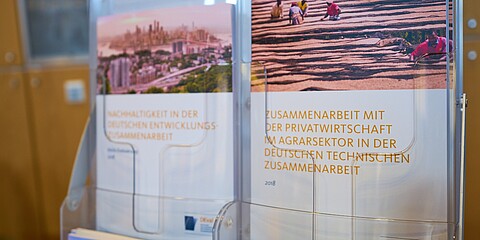
Publications
This section contains evaluation reports, evaluation syntheses, baseline reports, reviews, surveys and studies, policy briefs and publications by DEval employees.
26 result(s) found for your search.

This section contains evaluation reports, evaluation syntheses, baseline reports, reviews, surveys and studies, policy briefs and publications by DEval employees.
26 result(s) found for your search.